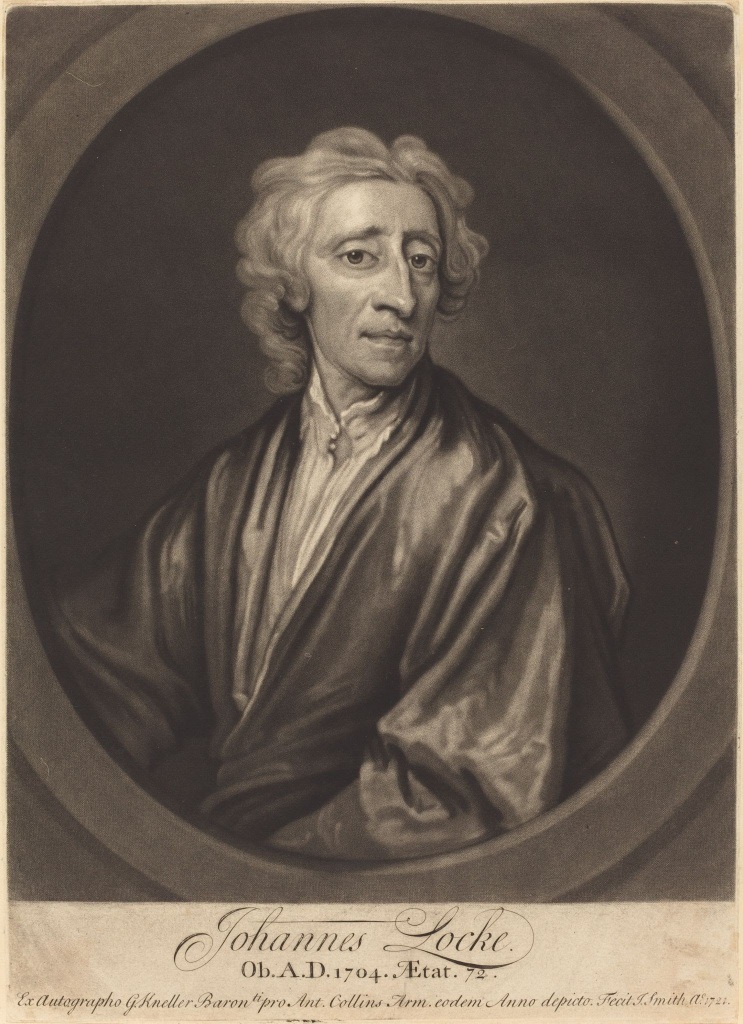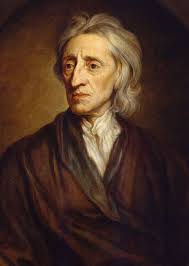Philosopher

Welcome to our exploration of John Locke, a pivotal figure in political philosophy and the foundation of modern democracy. Born in Wrington, Somerset on August 29, 1632, Locke’s groundbreaking ideas laid the groundwork for many political systems we see today. This blog will delve into his key political concepts, making them accessible and engaging, especially for students interested in the evolution of governance and political thought.

Early Life and Education: John Locke was born to a well-to-do family, with his father serving as a county lawyer and captain of the militia. Locke’s early education was rigorous, and he later attended the University of Oxford, where he studied medicine and natural philosophy. His academic journey profoundly influenced his later works, particularly his political theories.
Locke’s Political Ideologies:
Natural Rights and the State of Nature
Locke’s Two Treatises of Government (1690) presented a radical departure from previous political thought. He introduced the concept of natural rights, which are inherent and inalienable. Locke argued that in the state of nature, individuals have rights to life, liberty, and property. These rights are not granted by any authority but are intrinsic to human beings.
“All men are by nature free and independent, and have certain inherent rights… among which are the enjoyment of life and liberty, with the means of acquiring and possessing property, and pursuing and obtaining happiness and safety.”
The Social Contract
Locke challenged the notion of the divine right of kings, positing instead that governments derive their authority from the consent of the governed. This social contract is an agreement where individuals consent to form a government that will protect their natural rights. If a government fails in this duty, the people have the right to revolt.
Sovereignty of the People
One of Locke’s most revolutionary ideas was that sovereignty lies with the people, not the state. He believed that a legitimate government must be subject to the rule of law, bound by civil and natural laws. This principle directly influenced the development of constitutional governments.
Property Rights
Locke argued that property rights are natural rights. He believed that property ownership stems from one’s labor. When an individual mixes their labor with resources from nature, they create something that is inherently theirs. This concept laid the foundation for capitalist economic systems.
Separation of Powers
To prevent the abuse of power, Locke advocated for a system of checks and balances. He believed that the legislative, executive, and judicial branches of government should be separate and independent. This idea was later incorporated into the U.S. Constitution.
Religious Freedom
Locke was a staunch proponent of religious tolerance and the separation of church and state. He believed that the government should not interfere with individuals’ religious practices, as long as they did not harm others.
“Every man has a property in his own person. This nobody has a right to, but himself.”
….
Impact on Modern Governance:
Locke’s ideas were revolutionary and had a lasting impact on the development of political systems around the world. His emphasis on natural rights, the social contract, and the separation of powers influenced the founding fathers of the United States. Many of Locke’s principles were enshrined in the U.S. Constitution and the Declaration of Independence. Similarly, these principles have also been adopted and adapted in the Constitution of the Philippines, guiding the nation towards democratic governance and the protection of individual rights.
Global Impact:
Beyond the United States and the Philippines, Locke’s ideas have had a profound impact on political movements worldwide. His advocacy for the rights of individuals and the accountability of governments played a role in inspiring the French Revolution and later democratic movements across Europe and Latin America.

Impact on the Philippine Constitution:
The 1987 Philippine Constitution reflects many of John Locke’s political ideologies, emphasizing the protection of natural rights, the sovereignty of the people, and the necessity of a balanced government. Here are some key areas where Locke’s influence is evident:
1
Declaration of Principles and State Policies
Article II of the Philippine Constitution underscores the sovereignty of the people and the democratic foundation of the state, echoing Locke’s belief that government derives its authority from the consent of the governed. It states, “The Philippines is a democratic and republican State. Sovereignty resides in the people and all government authority emanates from them.”.
2
Bill of Rights
Locke’s concept of natural rights is reflected in the Bill of Rights of the 1987 Philippine Constitution. The Bill of Rights enshrines the fundamental rights of every Filipino, including the rights to life, liberty, and property. It also guarantees freedoms such as speech, assembly, and religion, echoing Locke’s advocacy for individual liberties and religious tolerance.
3
Separation of Powers
The Constitution establishes a system of checks and balances by dividing the government into three branches: executive, legislative, and judicial. This separation of powers is a direct application of Locke’s advocacy for independent branches of government to prevent the concentration and abuse of power.
4
Religious Freedom
Article III, Section 5, guarantees religious freedom, reflecting Locke’s belief in the separation of church and state. It ensures that no law shall be made respecting an establishment of religion, or prohibiting the free exercise thereof.
John Locke’s contributions to political philosophy cannot be overstated. His ideas about natural rights, the social contract, and the separation of powers continue to resonate in contemporary political discourse. By understanding Locke’s philosophies, we gain a clearer insight into the principles that underpin modern democratic systems and the enduring quest for liberty and justice. Locke’s influence is evident not only in Western democracies but also in the political frameworks of countries like the Philippines, highlighting his global impact.
References:
- Dunn, J. (1984). Locke: A Very Short Introduction. Oxford University Press.
- Tuckness, A. (2020). “Locke’s Political Philosophy”. Stanford Encyclopedia of Philosophy.
- Harison, J. T. (2015). “John Locke’s Influence on American Constitutionalism”. American Political Science Review.
- Davide Jr., H. G. (2002). “The Philippine Constitution: A Reflective Essay”. Philippine Law Journal.
- Ferns, E. A. (2010). “The Influence of John Locke on the Philippine Bill of Rights”. Asian Journal of Comparative Law.
- Philippine Constitution (1987). Official Gazette of the Republic of the Philippines.
We encourage readers to share their thoughts on Locke’s influence on modern politics. How do his ideas resonate with you today? Leave your comments and join the discussion.
Leave a comment